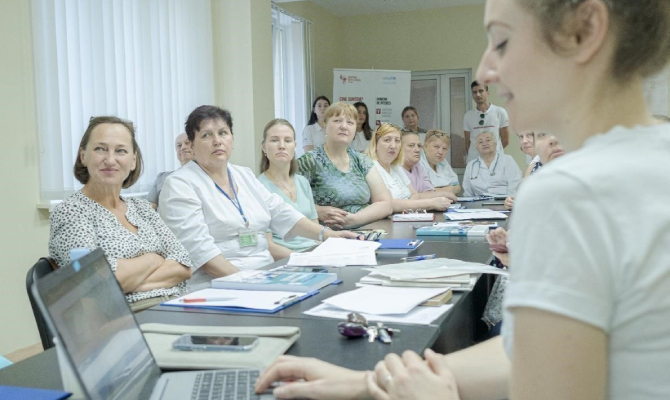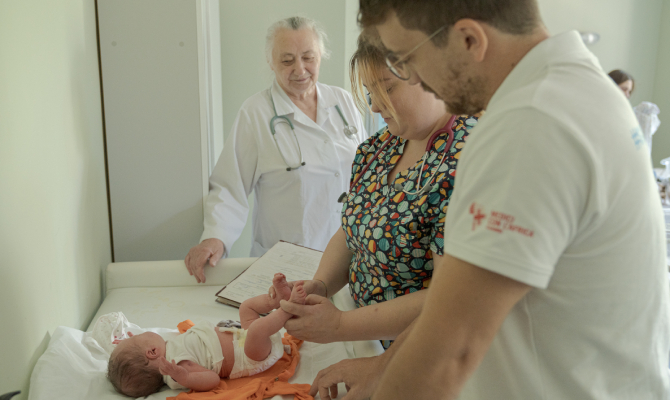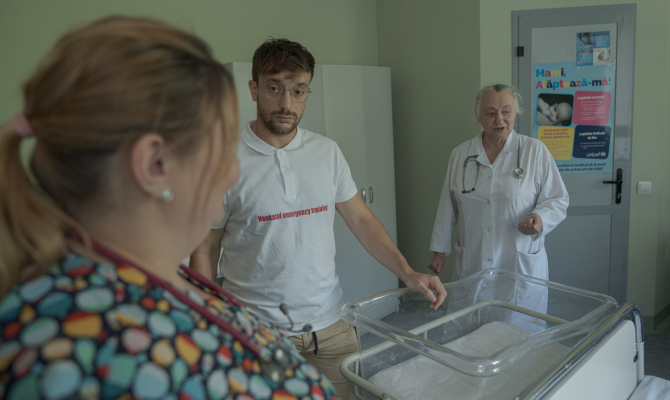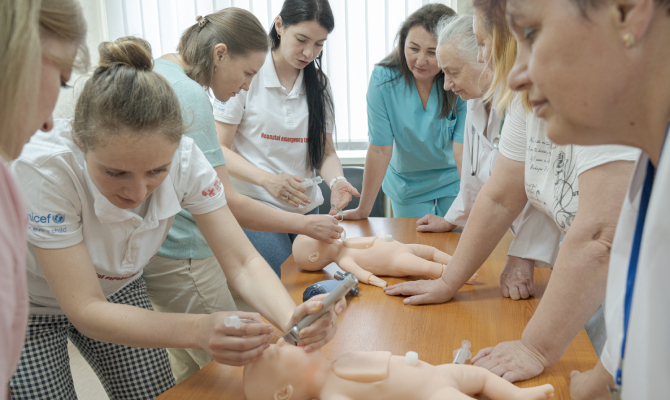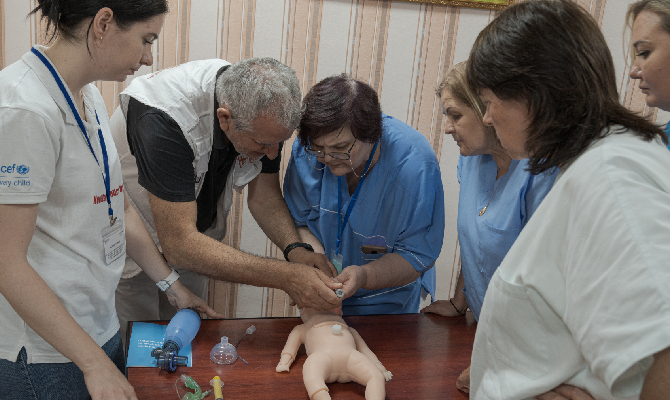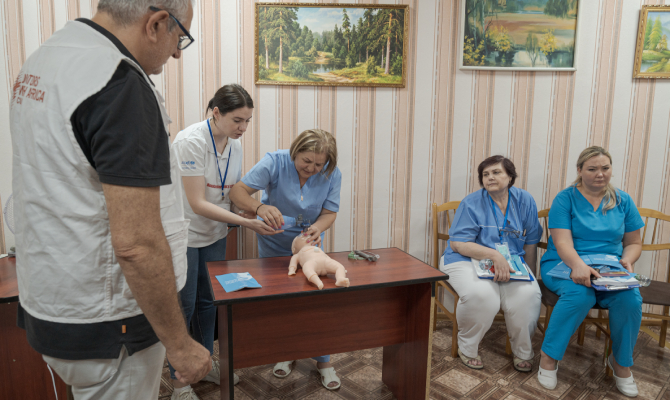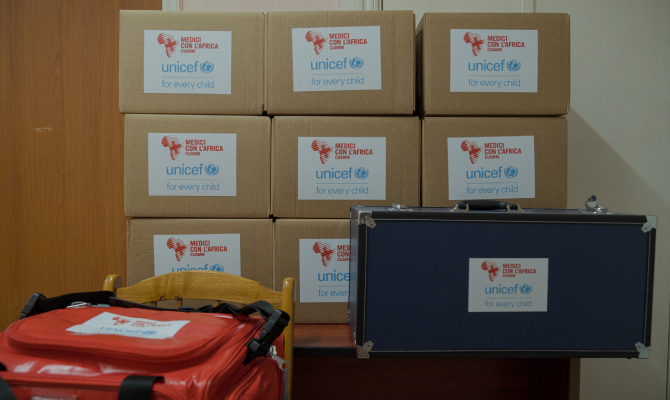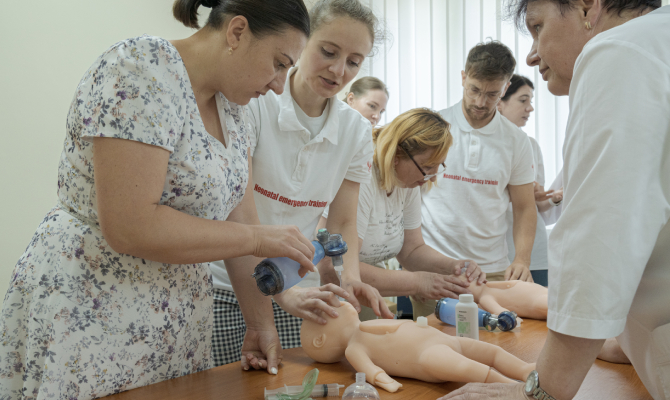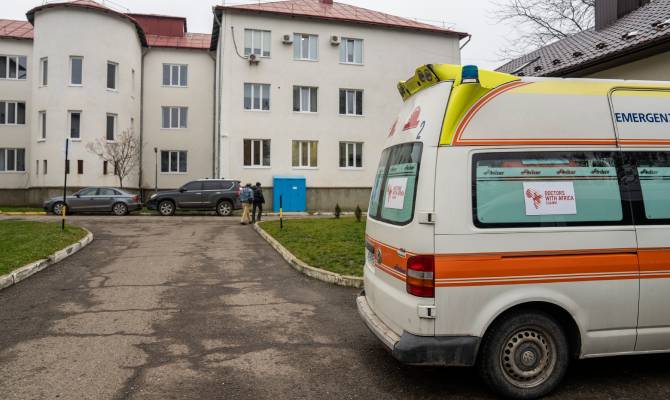«Being a regional facility we refer between 15 and 20 cases of preterm birth to third level facilities per year. Handling those cases is always challenging and needs specific knowledge, skills and equipment. Now, thanks to the practical sessions, we have acquired the skills and strengthen the health staff competencies on neonatal care due to training provided with the support of CUAMM and UNICEF» says Dr. Angela Țurcan – Head of the neonatal ward at Orhei hospital who attended the training on neonatal emergency and resuscitation.
Orhei Hospital is one of the 7 peripheral facilities where CUAMM, in partnership with UNICEF, has delivered a training program on neonatal emergency and resuscitation to local medical staff. Every year, approximately 1,200 deliveries are recorded in this facility, which represents over 4% of total deliveries across the country. The infant mortality rate in Moldova has declined from 26 in 2010 to 14.2 in 2022 (per 1000 live births). Nevertheless, national infant and maternal mortality indicators are still above the WHO European Region averages.
The training program was designed and planned in close collaboration with the Moldovan Ministry of Health with the ultimate goal of improving medical teams’ emergency response capabilities and fostering knowledge dissemination among colleagues for sustainable impact. While the national referral system is in charge of transferring neonatal emergencies from peripheral facilities to the central hospital in Chisinau for better health care, it is necessary that quality and timely newborns care is performed right after the delivery in order to stabilize the newborn. Nevertheless, insufficient human resources and specialized professionals in peripheral facilities can undermine the response capacity putting mothers and newborns at risk.
«There are only a few neonatologists in regional facilities, if every health professional was capable of performing neonatal resuscitation, the system would be more efficient and this is the reason why we are delivering this training, to enable everyone to provide neonatal emergency care to newborns, including intubation» says Dr. Anastasia Tean – Neonatologist and trainer.
The intervention was structured into three phases: phase 1 comprised seven 16-hours training sessions on neonatal emergency and neonatal resuscitation. Each session was facilitated by a team consisting of four local trainers from the IMAC hospital of Chisinau, along with 1 international expert trainer from Italy, for a total of 6 expert trainers from Italy. The participants of these trainings were a multidisciplinary team ranging from 12 to 20 individuals, for a total of almost 100 local doctors trained. Phase 2 focused on capacity building, with 14 local doctors selected during phase 1 participating in a Train the Trainers (ToT) program. The aim was to develop skills in transmission, leadership, and mentoring for the hospital teams. Additionally, low-fidelity manikins and neonatal resuscitation equipment were provided to all maternity units of the 7 hospitals. In Phase 3, the 14 mentors engaged in an exchange experience, working in the Neonatal Intensive Care Unit (NICU) and maternity units of the Level 3 Institute of Mother and Child. CUAMM facilitated this process, offering on-the-job training and hands-on experiences to enhance their skills.
Furthermore, the initiative equipped 8 local hospitals with warmers, training mannequins, medical kits, and essential products, ensuring they are better prepared to handle neonatal emergencies. This comprehensive training program seeks to achieve a multiplier effect, leading to a significant and sustained impact on neonatal care in the Moldovan health system.
«We do believe that if we had received these competencies earlier, we could have done better in the past. We thought we knew how to do things, but this training has shown us the gaps instead and suggested to work on them highlighting the importance of continuous learning» said Dr. Țurcan.
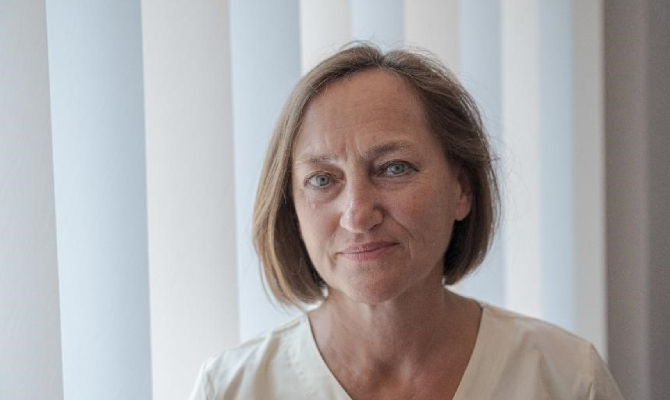
Since the conflict broke out on 24th February, 2022, over 869.000 people crossed the border seeking refuge in Moldova. 59% of which are women, 46% children and 20% elderly. As reported by UNHCR in the latest release more than 106.000 refugees remained in Moldova. Thanks to the partnership with UNICEF, CUAMM has been working in close collaboration with the Moldovan Ministry of Health to respond to the refugee crisis in the country, with the twofold objective of providing primary healthcare to Ukrainian refugees in 5 RACs in the city of Chisinau and offering specialized training on neonatal care to Moldovan health professionals.
TAKE A LOOK AT THE PHOTOGALLERY

